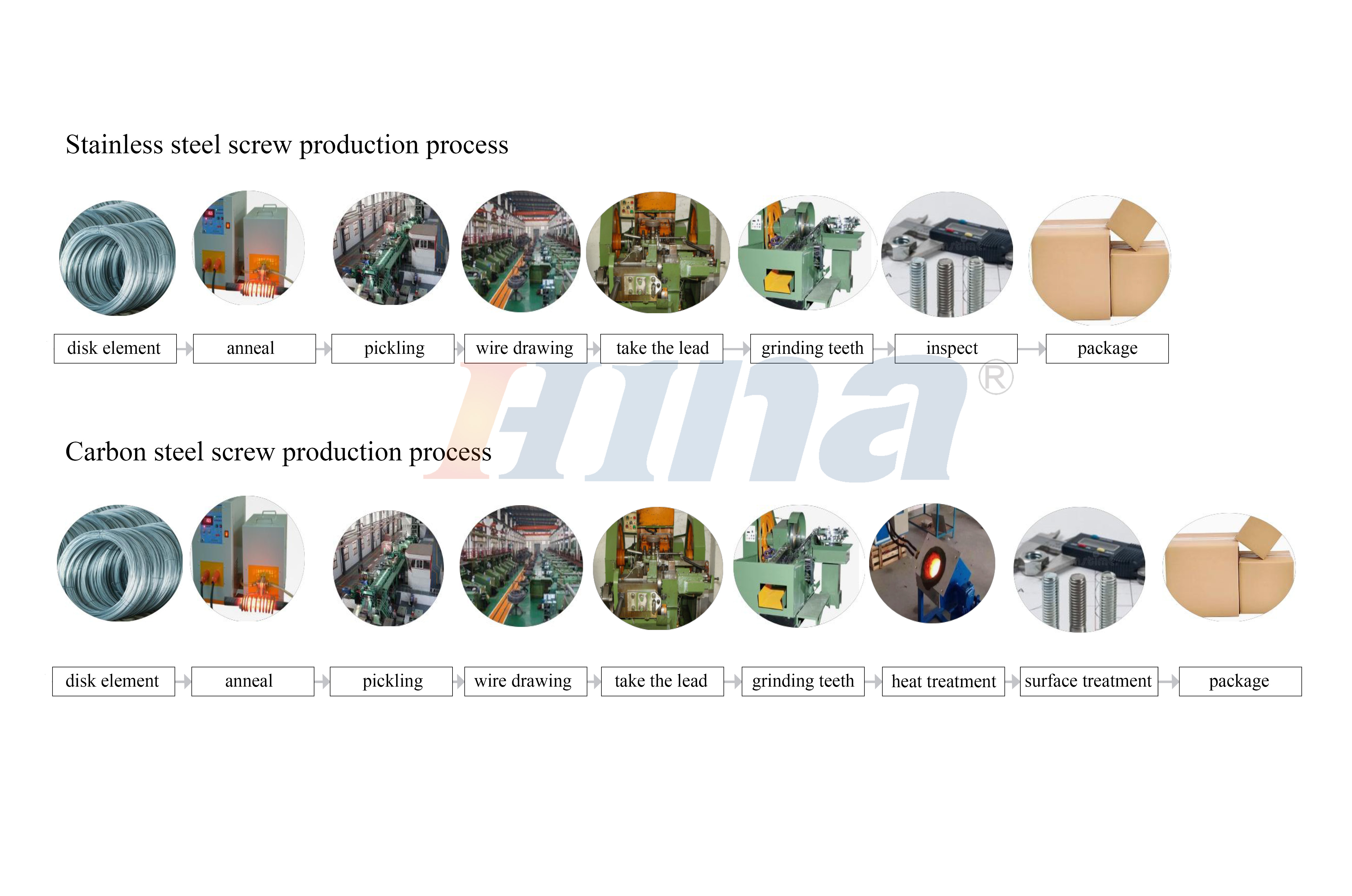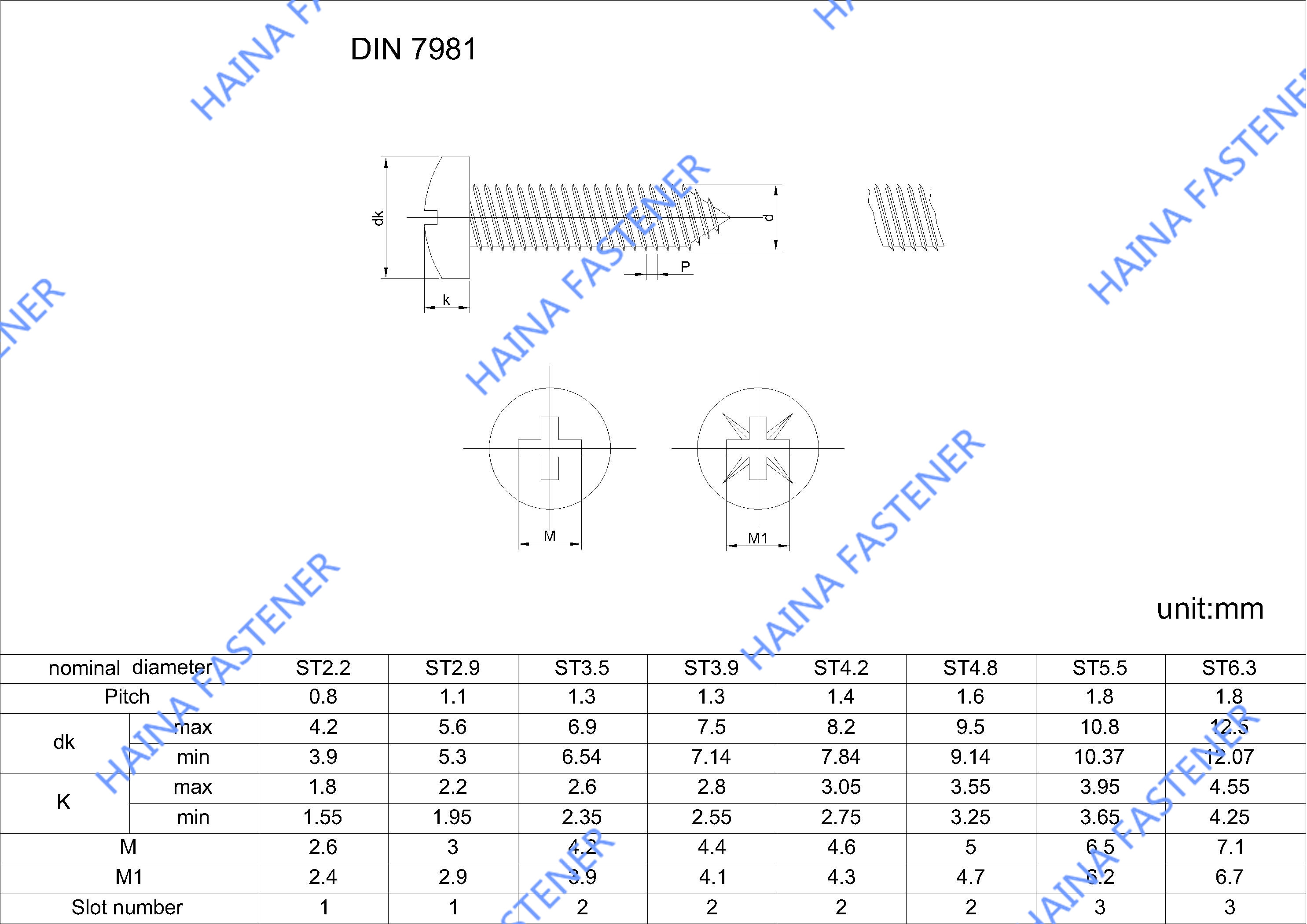- All
- Product Name
- Product Keyword
- Product Model
- Product Summary
- Product Description
- Multi Field Search
| Availability: | |
|---|---|
| Quantity: | |






HINA
HINA2024121203
Bi-metal screws are screws made of two different metals, such as SS304+SS410, SS316+SS410, SS304+SCM435, which combine the characteristics of the two metals to provide excellent performance and durability. They are usually used in scenarios that require corrosion resistance, high strength or special conductivity.




Marine engineering: Resist salt spray and corrosion.
Power industry: Used in situations with high conductivity requirements.
Construction industry: Used in key structural parts such as bridges and subways.
Chemical equipment: Connection and fixation in highly corrosive environments.
Strength and corrosion resistance: the core provides strength, and the outer layer protects the screw from corrosion.
Economical: Compared with screws made of all stainless steel or other single expensive metals, bimetallic screws have achieved a balance between cost and performance.
Wide adaptability: Suitable for different environments, especially humid or highly corrosive application scenarios.
Haina is committed to providing you with high-quality stainless steel standard fastener services. We have a large number of stocks, with sizes ranging from M5 to M20 and lengths from 10 to 200MM to meet your different needs. We provide you with free samples so that you can fully understand the product quality before purchasing. At the same time, we also provide authoritative 3.1 test reports to ensure that the products meet high standards. In addition, we support video factory inspections, so that you can remotely and intuitively understand our production environment and strength. Choosing Haina means choosing professional and reliable fastener services.
What screws to use for thick metal?
For thick metal, use self-drilling screws (Tek screws) with a built-in drill bit tip to penetrate without pre-drilling. Alternatively, use machine screws with pre-drilled and tapped holes or high-tensile bolts and nuts for extra strength. Choose hardened or stainless steel for durability and corrosion resistance.
What is the disadvantage of self-tapping screws?
The main disadvantage of self-tapping screws is that they can weaken the material by cutting threads, making it prone to stripping under high stress. Additionally, they may not be as secure in softer materials or require precise alignment to avoid damaging the threads.
How thick of metal can self-drilling screws go through?
Self-drilling screws can typically penetrate metal up to ½ inch (12.7 mm) thick, depending on the screw size, tip design, and material hardness. For thicker metals, pre-drilling or using specialized fasteners is recommended.
Bi-metal screws are screws made of two different metals, such as SS304+SS410, SS316+SS410, SS304+SCM435, which combine the characteristics of the two metals to provide excellent performance and durability. They are usually used in scenarios that require corrosion resistance, high strength or special conductivity.




Marine engineering: Resist salt spray and corrosion.
Power industry: Used in situations with high conductivity requirements.
Construction industry: Used in key structural parts such as bridges and subways.
Chemical equipment: Connection and fixation in highly corrosive environments.
Strength and corrosion resistance: the core provides strength, and the outer layer protects the screw from corrosion.
Economical: Compared with screws made of all stainless steel or other single expensive metals, bimetallic screws have achieved a balance between cost and performance.
Wide adaptability: Suitable for different environments, especially humid or highly corrosive application scenarios.
Haina is committed to providing you with high-quality stainless steel standard fastener services. We have a large number of stocks, with sizes ranging from M5 to M20 and lengths from 10 to 200MM to meet your different needs. We provide you with free samples so that you can fully understand the product quality before purchasing. At the same time, we also provide authoritative 3.1 test reports to ensure that the products meet high standards. In addition, we support video factory inspections, so that you can remotely and intuitively understand our production environment and strength. Choosing Haina means choosing professional and reliable fastener services.
What screws to use for thick metal?
For thick metal, use self-drilling screws (Tek screws) with a built-in drill bit tip to penetrate without pre-drilling. Alternatively, use machine screws with pre-drilled and tapped holes or high-tensile bolts and nuts for extra strength. Choose hardened or stainless steel for durability and corrosion resistance.
What is the disadvantage of self-tapping screws?
The main disadvantage of self-tapping screws is that they can weaken the material by cutting threads, making it prone to stripping under high stress. Additionally, they may not be as secure in softer materials or require precise alignment to avoid damaging the threads.
How thick of metal can self-drilling screws go through?
Self-drilling screws can typically penetrate metal up to ½ inch (12.7 mm) thick, depending on the screw size, tip design, and material hardness. For thicker metals, pre-drilling or using specialized fasteners is recommended.

